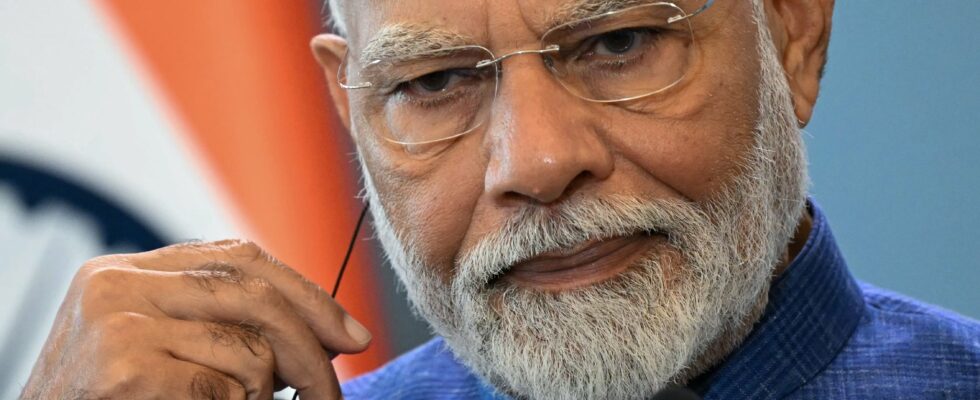Does Narendra Modi want to reset the counters? After his controversial trip to Moscow on July 8 and 9, the Indian Prime Minister is going to kyiv this Friday, August 23, where he will meet with President Volodymyr Zelensky.
The Hindu nationalist continues his perilous balancing act, begun since the beginning of the war in Ukraine, while continuing to present himself as a herald of peace and dialogue – without any convincing initiative to achieve it. “India firmly believes that no problem can be resolved on a battlefield,” Narendra Modi recalled in Warsaw, where he was on Thursday, August 22 before leaving for the Ukrainian capital, calling for the restoration of “peace and stability as soon as possible.”
A historic ally of Russia and partner of the West – to counterbalance China in the Indo-Pacific – New Delhi has been trying since the start of the war in February 2022 to maintain a neutral position.
kyiv expresses “huge disappointment”
So far, New Delhi has been able to take advantage of this opportunistic strategy, but Narendra Modi’s visit to Russia has drawn sharp criticism. The Indian prime minister, who has never condemned the Russian invasion, appeared alongside the Kremlin leader, undermining the United States’ efforts to isolate Vladimir Putin on the international stage, at the very moment that the 75th NATO summit was opening in Washington.
To make matters worse, during his stay in Moscow, Russian strikes targeted several Ukrainian cities on July 8, including the country’s largest pediatric hospital. These missile attacks caught Modi off guard. The contrast between the images of children in the rubble and the brotherly embraces of Narendra Modi and Vladimir Putin dealt a severe blow to his image.
The Ukrainian president had called India’s attitude a “huge disappointment” and a “devastating blow to peace efforts.” The United States had also made no secret of its displeasure. Narendra Modi, visibly embarrassed by the Russian strikes, had also alluded to them, saying that when “innocent children were killed,” the punishment was “horrible.”
Narendra Modi is therefore trying to correct the situation. “The Prime Minister’s visit to Ukraine is not surprising given that his trip to Moscow […] “has caused diplomatic surprise, even anxiety in the West,” KC Singh, a former Indian diplomat and strategic analyst, points out in a column. The visit is intended to “limit the damage caused to India’s image in the West by the ill-timed summit in Moscow in July,” the specialist continues. It also comes against the backdrop of a Ukrainian offensive on Russian territory.
New Delhi defends its strategic interests
Despite its talk of peace, New Delhi has no real plans to get directly involved in resolving the conflict. “There is no real demand for a mediating role, it is not something Mr Modi has in mind,” says Harsh Pant, head of the Observer Research Foundation, a New Delhi-based think tank close to the Ministry of External Affairs.
But Narendra Modi will above all have in mind “his own strategic interests”, continues the expert. And should therefore once again seek not to antagonize Moscow. More than 60% of Indian military equipment is of Russian origin and more than 40% of its oil imports come from Russia. Trade between the two countries has also seen a sharp increase since the beginning, reaching nearly 65 billion dollars for the 2023-2024 financial year, driven by oil imports.
India’s foreign ministry, however, said it was “not a zero-sum game” but “an important visit that should catalyse our ties across a range of sectors” in the economy. India has provided several humanitarian aid shipments to Ukraine since the invasion, but bilateral trade between the two countries remains very low, just under $3 billion, 20 times less than trade with Russia.
Before heading to Ukraine, Narendra Modi made a stop in Poland, a first since 1979. “For India, it is about defining the conditions for a long-term sustainable engagement with Poland and Ukraine, and more broadly with Central Europe,” believes international relations specialist Raja Mohan in his column in the daily Indian Express. No Indian prime minister has ever visited Ukraine before. Zelensky is probably hoping that this visit will encourage the South Asian giant to lean a little more towards his side…
.
